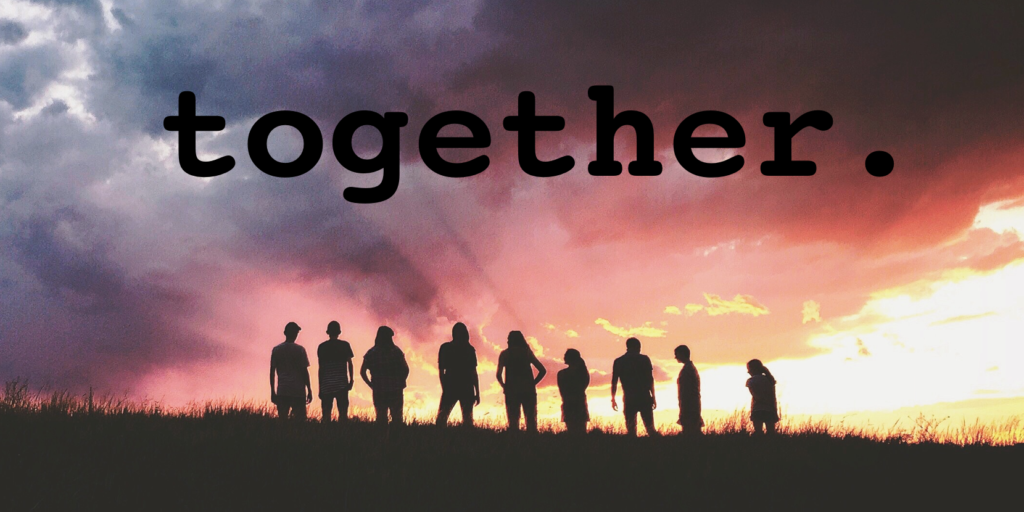For the last few months our theme at church has been “Together.” Whenever we choose a theme, we aim for our sermon series and at least most of our classes to have something to do with that theme. Let me show you what I mean.
We started out the year preaching a series called “Together: The Letters of 1–3 John.” Although 1 John is really more like a sermon than a letter (for example, 1 John is not addressed to anyone in particular but 2-3 John are) all three books show the importance of the church living and working together. John was obviously concerned for his spiritual children to live harmoniously with one another when he wrote these, and the challenge for us is really no different. Are we going to walk in the light like Jesus was in the light and have fellowship with one another (1 John 1:7)? Do we confess our sins to God and to each other (1 John 1:9)? Do we say we are in the light but hate our brothers and sisters (1 John 2:9)? I could keep going, but you get the idea.
I want to talk about that last one for just a second. I think as Christians we’ve set the bar unbelievably high on what it means to hate someone so that we never find ourselves guilty of it. “I don’t hate anyone,” we often hear – because we know hating people is wrong. We seem to think hating someone means holding up signs at rallies that say “God Hates So-and-So,” or things like this. But I think hatred is much more subtle than that. When we overlook suffering, especially the suffering of our own brothers and sisters, we certainly can’t call that “love,” but we’re hesitant to call it “hate,” too. There’s just one problem: indifference is as cruel as hatred, and neither has a place in the life of a believer. One of the things that dramatically set apart the early church from the surrounding culture was its radical care and concern it showed for others. Unwanted infants left on trash heaps (a regular occurrence for unwanted children in the ancient world since abortion was extraordinarily dangerous) were rescued by early Christians and adopted as their own children. Widows were provided for by the church’s offerings. The hungry were fed, the naked clothed, the sick and imprisoned were visited and cared for. The early church did all of these things and more, and would it surprise you to know an average congregation in the first century was about half the size of Nicholasville CoC? How will the world know we are Christians if not by our love? I’d rather be known for imitating Jesus and showing His love than for any sermon I preach, class I teach, or anything else.
It is also no coincidence that our 2018 theme “Together” follows immediately after our 2017 theme “Grow.” Last year’s theme was intended to help us all grow spiritually, grow in our maturity in Christ. It’s tempting for us to think that just because we’ve been going to church all our lives we must be mature Christians. That’s like assuming someone who has been working at the same place for a long time must be awesome at their job, but we all know people whose work ethic makes us scratch our heads and we ask “How have they been here this long?” Simply attending worship and even Bible class doesn’t equal a mature Christian; it’s transformation into the likeness of Jesus that equals a mature Christian – and that simply doesn’t happen by accident.
One way we grow spiritually is to be placed in situations which give us the opportunity to put into practice the kind of love Jesus demonstrated and calls us to show. A friend of mine described the process of training his son to use tools: if used improperly the tools can be dangerous, but with controlled exposure to danger the tools become instruments of good. Another way we grow is when we make real efforts to be with each other. Your experiences, your successes and failures, can be just as valuable to me as they are to you because as brothers and sisters in Christ you and I can learn from each other’s experiences. My suffering allows you the opportunity to bless me in the name of Jesus by encouraging me, or if need be, just sitting with me and mourning the great evil in this world and in our communities which make us long for Jesus’ return. God is creating a new family in Jesus, and as His family we “grow” “together” – to put last year’s theme and this year’s theme together.

